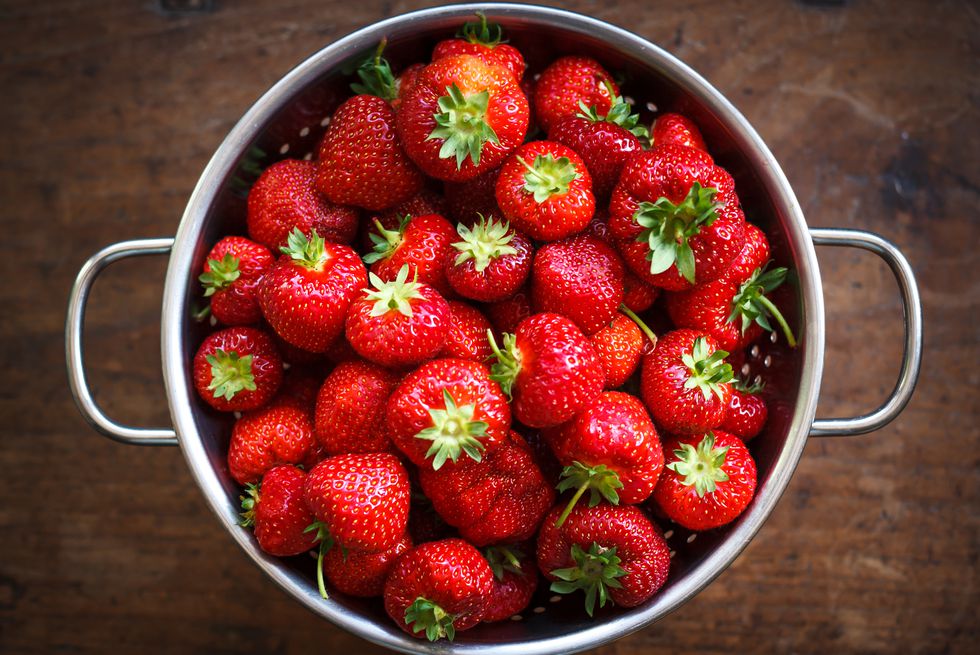Health-conscious shoppers are no strangers to the nutritional benefits of fruits and vegetables, but a 2018 report from the Environmental Working Group offers another reason to think twice about what you’re picking up at the grocery store. In their annual Shopper’s Guide to Pesticides in Produce, the nonprofit, nonpartisan environmental organization found that strawberries top the list with the most pesticide residues for the third year in a row. One-third of all strawberry samples contain 10 or more pesticides; one berry contained 22 pesticide residues alone.
The full list of the most contaminated fruits and vegetables includes:
- Strawberries
- Spinach
- Nectarines
- Apples
- Grapes
- Peaches
- Cherries
- Pears
- Tomatoes
- Celery
- Potatoes
- Sweet Bell Peppers
To compile this report, the EWG analyzed tests from the U.S. Department of Agriculture and factored six measures into the rankings, including the number of pesticides found on each individual piece of fruit, and how much pesticides were found. In all, the analysis included about 39,000 samples.
Research links pesticide ingestion to risks to brain development during pregnancy and early childhood. A 2012 report from the American Academy of Pediatrics recommends limiting pesticides in children as much as possible.
All that said, the EWG report isn’t a peer-reviewed study, meaning it hasn’t undergone rigorous review by any third party. Some food experts say the actual amounts of pesticides on produce is tiny—likely not enough to make a true impact on health—and that the Dirty Dozen discourages people from eating fruits and vegetables.
So if you’re already scanning the list and counting the number of possibly contaminated produce in your fridge right now, don’t panic and throw everything out. The EWG still recommends produce from the “Dirty Dozen” over unhealthy processed foods, and if you want to reduce pesticides in your diet, a simple shift in your shopping habits can help. Purchasing organic fruits and veggies is one of the best safeguards against pesticides, but another simple step is to learn and purchase produce has been found to contain the least pesticide residues.
EWG’s list of the “Clean Fifteen” produce includes:
- Avocados
- Sweet corn
- Pineapples
- Cabbages
- Onions
- Sweet peas (frozen)
- Papayas
- Asparagus
- Mangoes
- Eggplants
- Honeydew melons
- Kiwis
- Cantaloupes
- Cauliflower
- Broccoli












